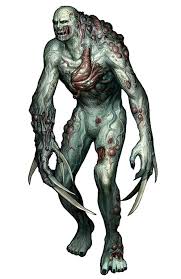中文词源
tyrant 暴君
来自拉丁语 tyrannus,国君,暴君,统治者,来自希腊语 tyrannos,国君,暴君,统治者。
英语词源
- tyrant (n.)
- c. 1300, "absolute ruler," especially one without legal right; "cruel, oppressive ruler," from Old French tiran, tyrant (12c.), from Latin tyrannus "lord, master, monarch, despot," especially "arbitrary ruler, cruel governor, autocrat" (source also of Spanish tirano, Italian tiranno), from Greek tyrannos "lord, master, sovereign, absolute ruler unlimited by law or constitution," a loan-word from a language of Asia Minor (probably Lydian); Klein compares Etruscan Turan "mistress, lady" (surname of Venus).
In the exact sense, a tyrant is an individual who arrogates to himself the royal authority without having a right to it. This is how the Greeks understood the word 'tyrant': they applied it indifferently to good and bad princes whose authority was not legitimate. [Rousseau, "The Social Contract"]
Originally in Greek the word was not applied to old hereditary sovereignties (basileiai) and despotic kings, but it was used of usurpers, even when popular, moderate, and just (such as Cypselus of Corinth), however it soon became a word of reproach in the usual modern sense. The spelling with -t arose in Old French by analogy with present participle endings in -ant. Fem. form tyranness is recorded from 1590 (Spenser); Medieval Latin had tyrannissa (late 14c.).
权威例句
- 1. The guy in charge was the typical smalltown tyrant.
- 管事者专横霸道,典型的小地方人。
- 2. The tyrant was deaf to the entreaties of the slaves.
- 暴君听不到奴隶们的哀鸣.
- 3. Her grandfather was a tyrant who insisted on absolute silence at the dinner table.
- 她祖父是个专横的人,坚持吃饭时绝对禁止讲话.
- 4. The country was ruled by a despotic tyrant.
- 该国处在一个专制暴君的统治之下。
- 5. For years the country was ruled by a tyrant.
- 这个国家被一个暴君统治了好多年.

